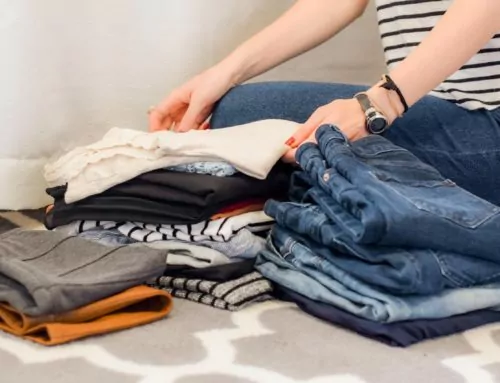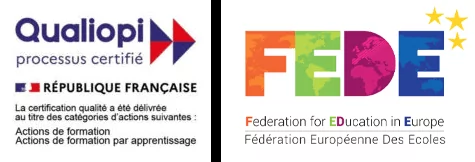A far cry from doomed e-commerce sites, many digital fashion brands have sprung up on the web in recent years. These new-style digital fashion brands were born of the Internet and social networks. In marketing jargon, they are known as Fashion Digital Native Vertical Brands. These brands evolve exclusively online. They have a huge presence on social networks, particularly Instagram.
Their secret? Emotion. Indeed, the communication strategy of these brands relies primarily on affect, staging and storytelling. Instagram is therefore often their first showcase. Designed for Millennials, these digital fashion brands have the strength to federate a real community around their products. Much more than simple e-shops, the most popular are those that know how to create a genuine sensorial experience around the brand. Let's take a closer look at the 5 brands that made online fashion the best in 2019.
1. Off-White, the digital fashion brand that's shaking up the fashion world
It's official, according to Lyst Index, the ranking of the most popular brands on the Internet, Off White, created by Virgil Abloh, Kanye West's former designer, has become the most influential brand, ahead of Gucci and Balenciaga.
Virgil Abloh's secret? His network of influencers. Indeed, he collaborated for many years with Kanye West, so he has become very close to the Kardashian-Jenner clan, the network with the highest number of followers on Instagram.
With its cutting-edge streat-wear and army of influencers, Off-White has won over the main target of digital fashion brands: Millenials.
To see the Instagram of today's most influential online brand, click here.
2. Sézane, when authenticity becomes a marketing strategy
Founded by former blogger Morgane Sézalory, Sézane was built entirely around storytelling. It's easy to see that its main marketing strategy is based on transparency and authenticity.
Like the Sézane Newsletter, written like an e-mail to a friend, the designer talks to her customers about her doubts, her mistakes, the brand's behind-the-scenes story. Morgane Sézalory could be your sister, your friend or your colleague.
In fact, Instagram helps create this connivance and sense of belonging to the brand. Since Sézane is very active on the social network, customers don't miss a crumb of every Sézane news item. Interaction with its community is therefore essential to the communication strategy of this Fashion Native Digital Brand.
To understand Sézane's success, take a look at their Instagram feed.
3. Le Slip Français, the art of capturing a niche market
One of the main characteristics of Fashion Native Digital Brands is to capture a niche market neglected by the major players in the textile industry.
Le Slip Français is a perfect example. Originally positioned in the online market for men's underwear, the brand faced little competition. Bringing a breath of fresh air to the sector, the brand naturally established itself as a leader in this uncompetitive market.
Le Slip Français vacation photos are here.
4. Nasty Gal, the leading digital fashion brand for Millennials
With its global success and singular history, Nasty Gal represents the American Dream 3.0. The brand's story begins with American Sophia Amoruso, who left school at 17 to take on a string of student jobs.
Then she began unearthing treasures in California's thrift shops and selling them on e-bay. Little by little, the auction site was no longer enough for her. So she created her own brand: Nasty Gal.
The young woman quickly grasped the marketing tools she needed to get her brand off the ground. A queen of storytelling, she published her autobiography entitled «#GirlBoss» in 2014. In light of her book's dazzling success, producers decided to devote a mini-series to her on Netflix.
Now surrounded by Instagram's most popular influencers, from Emily Ratajkowski to Frenchwoman Léna Simone, Nasty Gal is doing wonderfully in the fashion world.
5. Chanel takes a 360° turn towards the digital world
Over the past two years, the famous luxury brand has invested a billion dollars in digital. Having opened e-shops in over thirteen countries, the brand is now focusing on digital personalization.
In fact, Chanel wants to enrich the customer experience by offering personalized digital services in its boutiques. New technologies, such as improved customer advice, are currently being tested in Paris.
Chanel doesn't want to become a purely e-commerce brand, but is looking to modernize the in-store customer experience. The brand would like to emphasize real contact with customers, rather than the unique virtual interaction of the Fashion Native Digital Brand.
Would you like to combine your passion for digital and fashion? Discover the different fashion courses at ISAL Paris to become a key fashion player.




